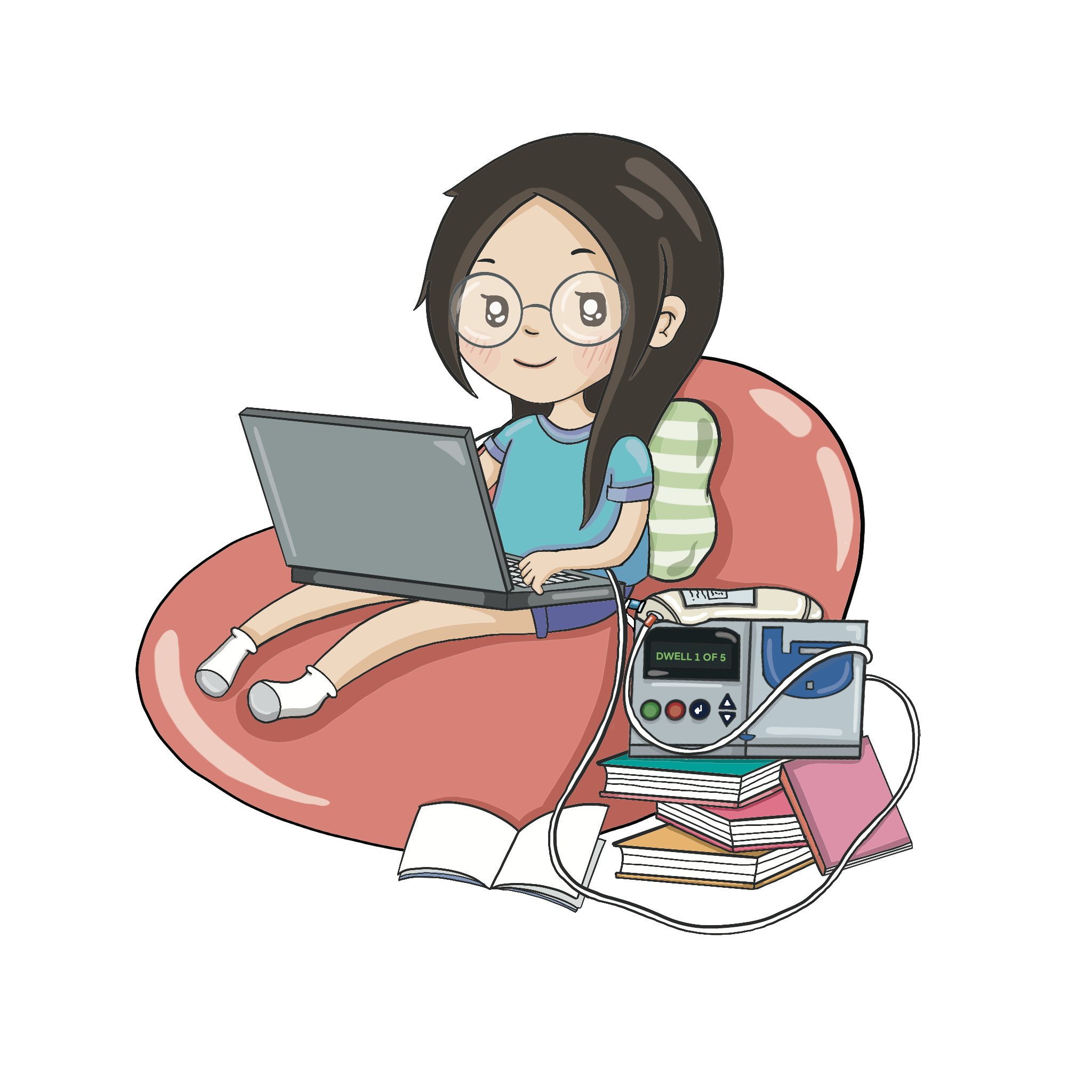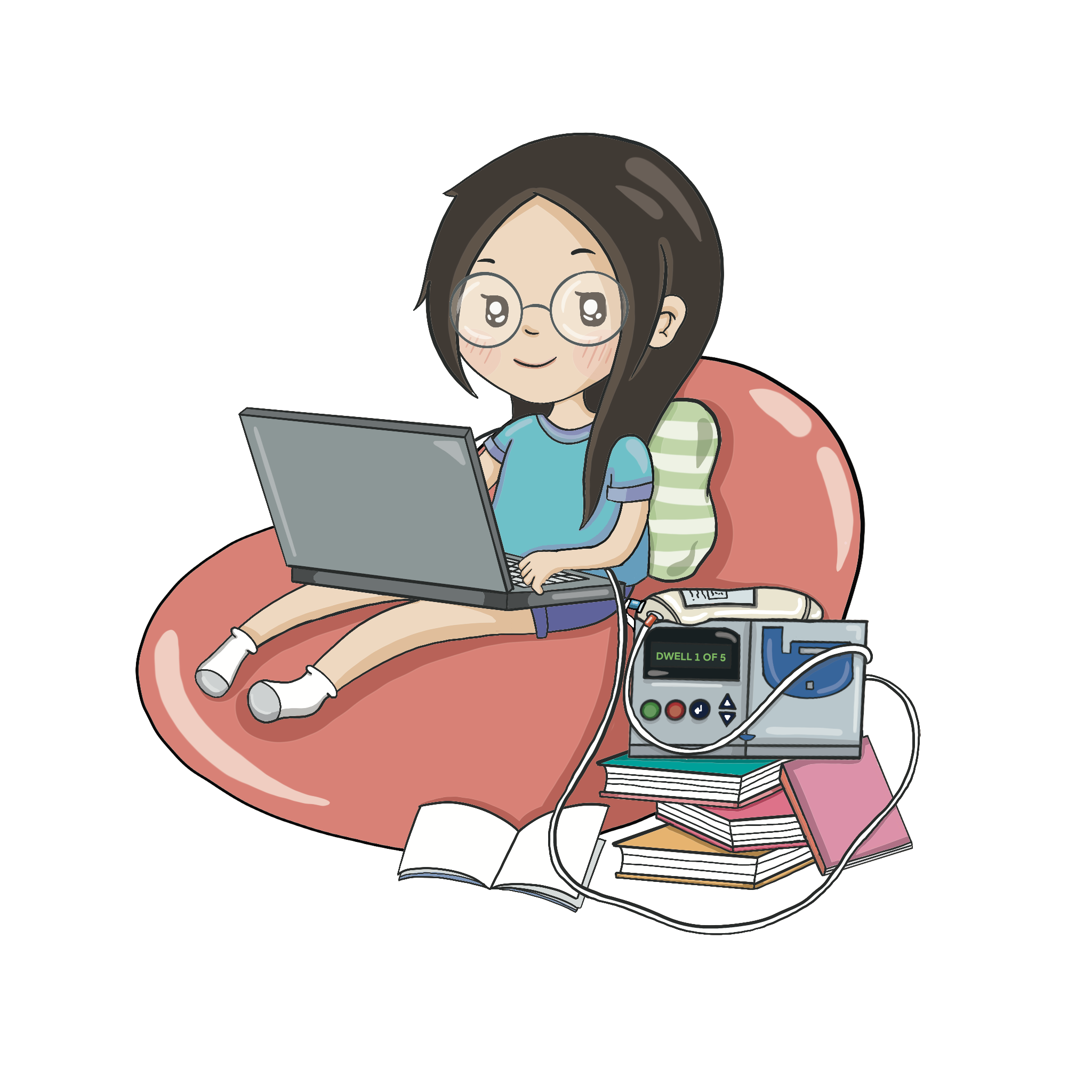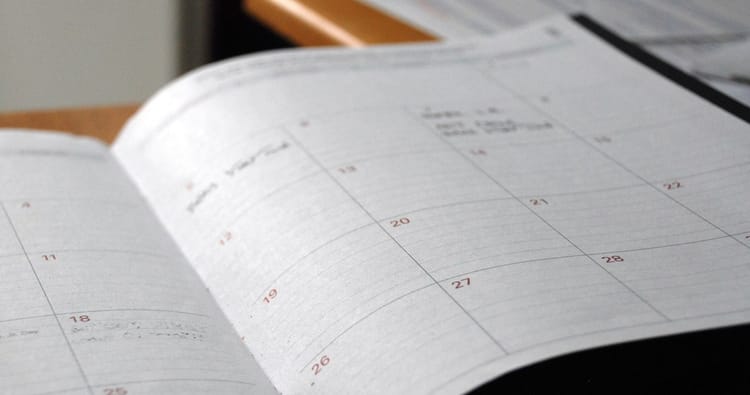Hospital Waiting Rooms From Childhood to Now

As someone whose kidney problems started as early as their troubled delivery into this world, I have often frequented a hospital waiting room, waiting for an older gentleman in a white coat, with a fountain pen in hand, and a stack of manilla folders beside him.
Today, I felt like charting my life of sitting in waiting rooms as a Child of Chronic Kidney Disease to a University Student with IGA Nephropathy to a Young Adult on Dialysis.
Children's Hospital
Waiting rooms as a child were as you can imagine a bit of a strange place. To get there you enter a big building and follow some colourful arrows on the floor, to a room filled with other parents and children of all ages. Some bigger than you, many a lot smaller than you, and even crying babies. All the adults are quiet and the din is made up of multitude of children talking and playing. I probably never realised there were teenagers there and misidentified them as more parents.
Mainly because they were quiet too.
I had already considered myself quite big compared to all the other children but that could be because I was seven years old when I had my first memory of that waiting room.
I would of have thought it was a bit like school playground at closing time but the juxtaposition of quiet adults to speaking children made it different. The parents deference and air of politeness to hospital staff was certainly not the friendly chatter that you'd see between parents and teachers in the playground.
Contrary to popular belief, when I tell friends that I've been attending appointments since the age of seven. I can't really say it was all that traumatic or that I felt any different from anyone else or indeed recognising it as an extraordinary experience at all.
In fact, I thought this was a commonplace occurrence in every child's life to see the doctor every 3 to 6 months. To measure height, weight, tell them about school and your favourite subject, followed by peeing in a bottle and following the butterflies on the wall to be struck by a cold spray followed by a needle for a blood sample while watching a scene from some random Disney movie. And your choice of plaster design.
Anyway, there were always other kids around and they all seemed happy playing with the available colouring pens, toys and in later years an Xbox console. So, why should I have felt any uneasiness?
My main memories of these appointments were that they were days off school and would near take up a whole school day so there was never much fun in it and my Dad was never happy going either.
Adult Outpatients
I had chronic kidney disease from birth but I had made it to sixteen years old without much issue, other than some white tablets. The children's hospital appointments became monotonous and a nuisance for both my parents, and I became more focused on my studies and the looming of public exams and applications to university.
I was always in a rush. I had to get back to school so I didn't miss any lessons because that would only mean more to catch up on in the evening. I always preferred learning in class rather than self study.
There was a suggestion from the doctor in the whitecoat for me to move to the Adult Outpatients unit, which was only 10 minutes from my house as opposed to the 90 minute journey to the Children's Hospital.
My parents will be pleased I thought. I asked no questions. He told me I'd receive a letter. I assumed it would be fine.
Adult Outpatients is what they call a space for rotating specialist clinics. White fluorescent lights, white walls, peeling posters and lines of chairs with a big reception desk in the corner with endless ringing telephones. There were no children now. There were no crying babies either. My dad dropped me off this time, he'd come back when I call him to.
I go up to the desk and ask for the room number and I wait outside to be called in. No surprise, it's another Doctor in a white coat, this time with a ball point pen and a stack of even more files with stuffing of loose sheets in between manilla covers.
There's no chat. He's says I have high blood pressure. Gives me a green script and asks me to get bloods and urine samples to the nurses. I go take a ticket for bloods and find a nurse for a urine sample bottle. Then I'm going home.
I think how quick this all is. How much better.
I come back in 6 months, repeat the procedure and go inside the room to find another doctor in a white coat with a biro pen and the same stack of files.
Ah. This is what it is to be an Adult Patient. Rotating doctors.
Another thing I learnt, is that I'm not the only one in a rush, but the doctors are too.
However, when you come back from a kidney biopsy and you are diagnosed with an autoimmune disease called IGA Nephropathy and the doctor has to write it down for you. You want to slow down and ask questions. But, the doctor says we will keep monitoring and you take the train back to university.
I rush to my next university lecture.
Peritoneal Dialysis Waiting Room
A bit of a time skip and I'm sitting in the CAPD waiting room, a line of four comfy high backed chairs. There's no one rushing around here now.
There are no children. There are no babies. There are no young people or young parents. There is no one on either side of me. It's just me waiting in the corridor.
The corridor is long and narrow but quiet. I can only hear murmurs and beeping machines when the ward doors swing open and close.
Not much to do in this quiet corridor. Lucky I have a smart phone now and earphones too. Wouldn't want to break the silence and you silently cheer for some excellent free Wi-Fi.
I have already submitted my bloods last week. That's what we will be talking about today. And.. well I don't urinate anymore. I don't have to give my height anymore because I've stopped growing, stubbornly sooner than I had expected at a height I wasn't that satisfied with. haha. However, the nurses still take interest in my weight. But now there's a differentiation between dry weight and filled weight.
I'm called into see the doctor. This doctor didn't have a white coat nor a stack of files beside him. A nurse was there with the files behind him and she was writing instead. He was looking at me and then typing on the computer and looking at my blood results and then turning the screen for me to see!
I have more to say now I am on home peritoneal dialysis. It's no longer just the doctor talking but a conversation. There's more time to talk and vent and discuss next steps. I am not in a rush. I am not rushed.
I hesitate before leaving to see if I have anything else to say. I do not and I go home.
Over the three years of me waiting in that CAPD corridor, I met other patients of no similar age to myself walking past me straight to the nurses for light conversation about their dialysis like they had known each other for years. I met pairs of carers and patients being wheeled and parked next to me and frailer still patients with walking sticks that I get up to give my seat.
However, I never saw anyone close my age of 23, then 24 until I turned 25, I caught sight of a young man entering the doctors room but I left to go home.
It's a bit unsightly to think perhaps it's the young man that is on dialysis. Perhaps he is only the carer for someone else. But it did fill me with a bit of hope that I wasn't the only one in this situation.
Closing Remarks:
I've since actively searched and found a community of young adults on dialysis and kidney disease and no longer feel the social isolation of my situation. I reflect on how my experience of waiting rooms changed over the different stages of my life, as I became more aware of my health condition, its importance and how my changing surroundings revealed the gravity of the situation.
Some may say it must be difficult to look back on my childhood because of the hospital appointments, but my ignorance made me feel no different than anyone else. It is much harder to look back in my teenage years, where I feel now I should have known better but I was still ignorant and did not think to learn more about my situation. I had become complacent of monotonous hospital appointments in the Children's Hospital that took too much time with no long explanation of results because everything was stable. I took that for granted.
I flowed willingly through the two core institutions of my life: the NHS and Academia and never thought to question it or slow down when things became out of balance. I only knew one model to live by and that was the way everyone else was living.
Education > Degree > Career.
It's hard to pin down what caused my kidney failure at 23 but the feeling of unpreparedness and being blindsided by an abrupt and total decimation of my way of life in space of a day was something I neither expected nor knew could happen so soon.
This is one of the reasons why I started this website, not only to connect with other young adults in the same situation as myself but to hopefully provide an account to others who may be caught up in the rush of life and perchance catch sight of a blog post in a quick google search between classes that details the experience of a young person's perspective and not disregard it all like I did. Google search back then left me with pages of websites with complicated definitions and medical research papers that just mean nothing to someone who's just trying to find out what it all means to someone like them. Not to mention endless photos of older folks 😅
Anyway that concludes my day 6 of 12 days of Blogmas.
Something of a deeper cut today, I feel.
Wishing you well on your kidney journey 😄
Lai x
Consider following me on
💜Instagram: @My_Kidney_and_Lai
🧡YouTube: My Kidney and Lai





